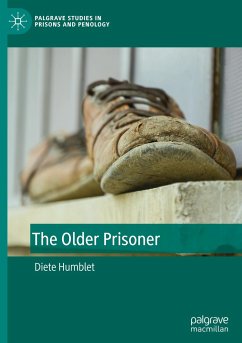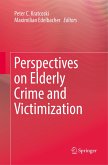This book critically explores the world of older prisoners to provide a more nuanced understanding of imprisonment at old age. Through an ethnographical study of male and female older prisoners in two Belgian prison settings, one in which older prisoners are integrated and one in which they are segregated, it informs debates and seeks to recognise ageist discourse, attitudes, practices in prison. The Older Prisoner seeks to situate the older prisoner from both a penological and gerontological perspective, organised around the following broad themes: the construction of the older prisoner, the physical prison world, the social prison world, surviving prison and giving meaning. The book allows readers to navigate between contrasting perspectives and voices rather than reinforcing traditional narratives and prevailing discourses on the older prisoner. In doing so, it hopes to open up a broader dialogue on ageing and punishment. It also offers insights into the concept of meaning in life as an analytical tool to study prisoners.
Bitte wählen Sie Ihr Anliegen aus.
Rechnungen
Retourenschein anfordern
Bestellstatus
Storno









